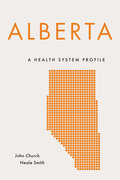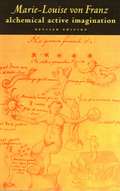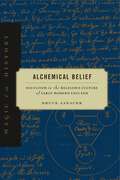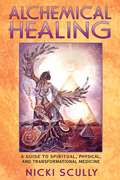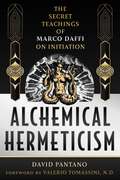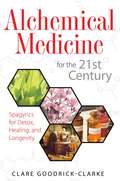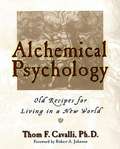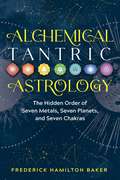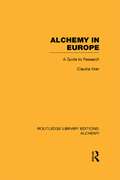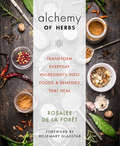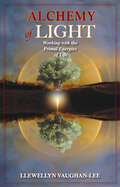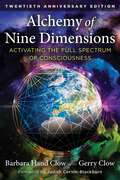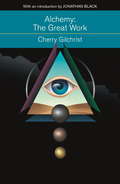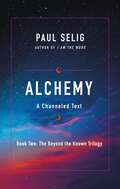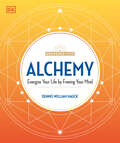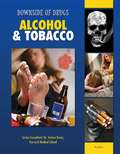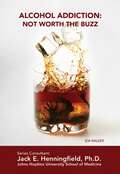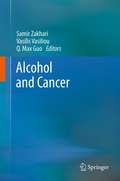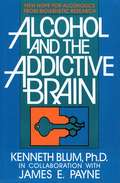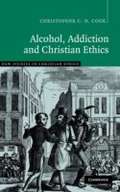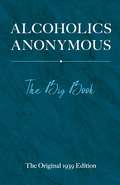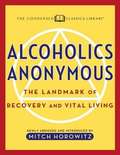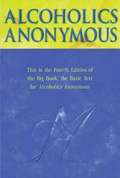- Table View
- List View
Alberta: A Health System Profile (Provincial and Territorial Health System Profiles)
by John Church Neale SmithAlberta: A Health System Profile provides the first detailed description of Alberta’s health care system and the underpinning political and social forces that have shaped it. Drawing on significant wealth from government revenues generated through the energy sector, Alberta has been able to develop an extensive public health and health care infrastructure. Alberta has used its financial resources to attract health professionals by offering the highest levels of financial compensation in Canada. However, although it spends more per capita than other Canadian jurisdictions, Alberta’s health care system costs and health outcomes are mediocre compared to those of many other Canadian jurisdictions. This unexpected outcome is the consequence of the unique interplay of economic and political forces within Alberta’s political economy. Through an examination of Alberta’s political and economic history, and using research on the structures and services provided, Alberta: A Health Systems Profile provides a detailed description of the programs and services that constitute Alberta’s health care system.
Alchemical Active Imagination: Revised Edition
by Marie-Louise von FranzAlthough alchemy is popularly regarded as the science that sought to transmute base physical matter, many of the medieval alchemists were more interested in developing a discipline that would lead to the psychological and spiritual transformation of the individual. C. G. Jung discovered in his study of alchemical texts a symbolic and imaginal language that expressed many of his own insights into psychological processes. In this book, Marie-Louise von Franz examines a text by the sixteenth-century alchemist and physician Gerhard Dorn in order to show the relationship of alchemy to the concepts and techniques of analytical psychology. In particular, she shows that the alchemists practiced a kind of meditation similar to Jung's technique of active imagination, which enables one to dialogue with the unconscious archetypal elements in the psyche. Originally delivered as a series of lectures at the C. G. Jung Institute in Zurich, the book opens therapeutic insights into the relations among spirit, soul, and body in the practice of active imagination.
Alchemical Belief: Occultism in the Religious Culture of Early Modern England (Magic in History)
by Bruce JanacekWhat did it mean to believe in alchemy in early modern England? In this book, Bruce Janacek considers alchemical beliefs in the context of the writings of Thomas Tymme, Robert Fludd, Francis Bacon, Sir Kenelm Digby, and Elias Ashmole. Rather than examine alchemy from a scientific or medical perspective, Janacek presents it as integrated into the broader political, philosophical, and religious upheavals of the first half of the seventeenth century, arguing that the interest of these elite figures in alchemy was part of an understanding that supported their national—and in some cases royalist—loyalty and theological orthodoxy. Janacek investigates how and why individuals who supported or were actually placed at the traditional center of power in England’s church and state believed in the relevance of alchemy at a time when their society, their government, their careers, and, in some cases, their very lives were at stake.
Alchemical Belief: Occultism in the Religious Culture of Early Modern England (Magic in History)
by Bruce JanacekWhat did it mean to believe in alchemy in early modern England? In this book, Bruce Janacek considers alchemical beliefs in the context of the writings of Thomas Tymme, Robert Fludd, Francis Bacon, Sir Kenelm Digby, and Elias Ashmole. Rather than examine alchemy from a scientific or medical perspective, Janacek presents it as integrated into the broader political, philosophical, and religious upheavals of the first half of the seventeenth century, arguing that the interest of these elite figures in alchemy was part of an understanding that supported their national—and in some cases royalist—loyalty and theological orthodoxy. Janacek investigates how and why individuals who supported or were actually placed at the traditional center of power in England’s church and state believed in the relevance of alchemy at a time when their society, their government, their careers, and, in some cases, their very lives were at stake.
Alchemical Healing: A Guide to Spiritual, Physical, and Transformational Medicine
by Nicki ScullyCombines shamanism, alchemy, and energy medicine to create a unique healing modality• Explores how to turn the base substance of who you are--the dark mystery of your subconscious--into the alchemical gold of knowledge and enlightenment• Includes techniques of distant healing and working with power animals and plant, mineral, and elemental spirits• Shows how to utilize the Universal Life Force to reawaken inherent healing abilitiesAlchemical Healing brings together innovative techniques of shamanism and energetic healing with the principles of alchemy, creating a practical form of physical healing, therapeutic counseling, and spiritual growth. The author provides ways to integrate spirit and matter, to develop communications between divinity and humanity, to retrieve knowledge, and to influence physical reality in order to achieve healing and transformation. With simple directions, readers are guided through attunements and empowerments that access the Universal Life Force energy and a five-element system for healing themselves and others. They learn powerful techniques, such as psychic surgery, distant healing, and how to work with power animals and plant, mineral, and elemental spirit guides. Alchemical Healing presents a sacred journey into the most profound principles and mysteries of creation. It offers both an art form and a spiritual path that develops one’s ability to co-create the future with the wisdom of the spirit world.
Alchemical Hermeticism: The Secret Teachings of Marco Daffi on Initiation
by David Pantano• Presents Daffi&’s writings on unique and unusual experiences from five decades of alchemical and hermetic practice, available for the first time in English• Offers a view of Daffi&’s &“Inner Laboratory&” and his pioneering investigations into consciousness, past-life regression, Hermetic healing, and divination• Offers a psychological portrait of Daffi through writings by initiates, artists, and scholars who knew or had firsthand knowledge of the BaronFollowing the path set by renowned alchemist Giuliano Kremmerz, Marco Daffi was one of the most interesting and controversial protagonists of magical Hermeticism in the 20th century, a master initiate who illuminated the more esoteric aspects of Hermetic practice in terms of initiation, gnosis, eros, divination, and consciousness.In this comprehensive look at the man born Baron Ricciardo Ricciardelli, yet better known by his spiritual name of Marco Daffi, historian and researcher David Pantano presents Daffi&’s writings on some of the most unique and unusual topics within alchemical Hermeticism, available for the first time in English.Through his visionary writings, Daffi elucidates firsthand accounts of "initiatory experience" and the inner visions of Hermetic practices, supported by relevant experiential praxis. Readers are able to enter Daffi&’s "Inner Laboratory" and experience his pioneering investigations into the numinal or interdimensional aspects of consciousness. Daffi details the descensus ad inferno he took into the dark cavernous recesses of past-life regression for purposes of Hermetic healing. His writings also reveal his practical applications of oracular-modes of consciousness, especially by exercising his considerable mediumistic capabilities.Exploring the more human side of Daffi that influenced his work, Pantano shares biographical information and writings from initiates, artists, and scholars who knew of the Baron. These never-before-translated writings provide context and additional depth for the insights that permeate Daffi&’s alchemical and magical work and philosophy. Pantano also includes Daffi&’s own account of the infamous "Trial of the Magus," which pitted him against the grandson of his teacher, Giuliano Kremmerz, at the height of Italy&’s fascist era.Providing an inside view of the magus at work, a glimpse into the far-reaching spiritual horizon of a man who explored the depths of the astral realm and the most occult aspects of alchemy and Hermeticism, this book allows the reader to see with an initiate&’s eyes the kaleidoscopic prism of Daffi&’s expansive vision of reality.
Alchemical Medicine for the 21st Century: Spagyrics for Detox, Healing, and Longevity
by Clare Goodrick-ClarkeUsing the ancient art of spagyrics for treatment of today’s health problems • Contains detailed indications for using alchemical preparations therapeutically • Shows how the essences work holistically to heal the mind, body, and spirit with the energetic qualities of the plant • Provides effective therapy for a wide range of physical and mental disorders Spagyrics is a branch of medicinal alchemy that enhances the healing properties already existing in plants. Developed by Paracelsus, the magus and alchemist of the early 16th century, spagyrics is a holistic therapy that promotes healing at all levels of the human being--body, soul, and spirit. Spagyric essences harness the dynamic life force in plants that triggers recovery from the energetic imbalance of illness. The harmonizing and balancing qualities of spagyric essences differ from other plant remedies and aromatherapy oils because they not only include the plant’s energetic information but also incorporate the salt of the plant, from which all toxic matter has been purged. The preparation of this alchemical medicine makes it possible to capture the full therapeutic spectrum of plants, including the cosmic energies they have absorbed. Alchemical Medicine for the 21st Century contains detailed indications for using these alchemical preparations to treat both physical and mental disorders. The author shows, for example, that the tincture made from dandelion is especially potent on liver-related ailments and also raises the spirit and frees the patient from anger and bitterness. The immune system is also boosted by this essence, providing tonic effects for allergy sufferers. The author, a homeopath since 2000, also shows how these spagyric essences can be potentized homeopathically.
Alchemical Psychology
by Thom F. CavalliAlchemical practices have been reborn in our contemporary world under the rubric of Jungianism, transpersonal psychology, or depth psychology. But in Alchemical Psychology, Thom F. Cavalli, Ph. D. , takes us directly to the source--and on a wonderful adventure into the true nature of our hearts and minds. In a book that sparkles with verve, life, and practicality, Dr. Cavalli explains how alchemy was one of humankind's earliest efforts to transform the nature of consciousness. What little-known or underground arts did alchemists practice in pursuit of self-transformation--and how can they enrich us today? Using the same practices that he employs with patients, Dr. Cavalli offers readers a plethora of personal exercises that, among other things, enables them to "type" themselves according to ancient alchemical identifiers of nature and personality. He then provides practices that can help free them from the grip of familiar problems and foster true personal growth. Beautifully illustrated with medieval prints from the alchemical tradition, Alchemical Psychology gives readers both a richer understanding of their own natures and of the traditions on which many of our modern therapies are based. .
Alchemical Tantric Astrology: The Hidden Order of Seven Metals, Seven Planets, and Seven Chakras
by Frederick Hamilton Baker• Shows how the astrological cycle around the signs of the zodiac represents the alchemical transformation of consciousness and chakra awakening • Expands the meaning of each astrological sign based on its association with the chakras and the alchemical transmutation cycle from lead to gold • Offers sample chart analyses to show how you can discover your spiritual challenges and opportunities Demonstrating the connections between astrology, alchemy, and yoga, Frederick Baker reveals how he discovered their correspondences by rotating the natural order of the zodiac, placing Aquarius and Capricorn at the bottom and Cancer and Leo at the top, to reflect the alchemical order of metals from lead to gold. is Alchemical Tantric Arrangement then revealed a corresponding alchemical order of the seven traditional planets--from Saturn (lead) to Sun (gold)--and also aligned with the seven chakras and the three major energy channels (nadis) of the Tantric yoga system, including the channel through which Kundalini energy rises from root chakra to crown chakra. Baker uses these rediscovered correspondences to expand the meaning of each astrological sign based on their association with the chakras, the alchemical transmutation cycle from lead to gold, and the wisdom of ancient myth. He also offers expanded meanings for each chakra in association with the twelve signs of the zodiac and their ruling planets as well as new insights into the influence of Chiron and Eris. The author provides a complete analysis of his own birth chart as well as Alchemical Tantric Astrology insights into significant events over the past few decades, including the intense changes of 2020. Baker&’s revolutionary new take on our individual spiritual journeys shows how the astrological cycle around the signs of the zodiac represents the alchemical and Tantric transformation of consciousness and the natural path of spiritual unfolding.
Alchemy in Europe: A Guide to Research (Routledge Library Editions: Alchemy)
by Claudia KrenThis comprehensive annotated bibliography, first published in 1990, guides the user helpfully through where to find information on various elements on alchemy when researching. Divided into categories to aid finding the right area of interest, this book forms a unique reference tool.
Alchemy of Herbs: Transform Everyday Ingredients into Foods and Remedies That Heal
by Rosalee de la ForêtDid you know there’s a powerful herbal medicine chest in your kitchen?Imagine being prepared for that next cold, scrape, headache, digestive issue, stressful day, or sleepless night with simple ingredients from your cupboard. Instead of pills, reach for:Cinnamon Tea to soothe your throat . . . Garlic Hummus to support your immune system . . . Ginger Lemon Tea for cold and flu symptoms . . . Cayenne Salve to relieve sore muscles . . . Cardamom Chocolate Mousse Cake for heart health . . . A glass of Spiced Cold Brew Coffee as a powerful antioxidant . . .Alchemy of Herbs will show you how to transform common ingredients into foods and remedies that heal. What were once everyday flavorings will become your personal kitchen apothecary. While using herbs can often seem complicated or costly, this book offers a way to learn that’s as simple and inexpensive as cooking dinner.With the guidance of herbalist Rosalee de la Forêt, you’ll understand how to match the properties of each plant to your own unique needs, for a truly personalized approach to health for you and your family.In addition to offering dozens of inspiring recipes, Rosalee examines the history and modern-day use of 29 popular herbs, supporting their healing properties with both scientific studies and in-depth research into herbal energetics.Grow your knowledge of healing herbs and spices, and start using nature’s pharmacy to feed, heal, and nurture your whole family!
Alchemy of Light: Working with the Primal Energies of Life
by Llewellyn Vaughan-LeeDelving into the inner world of archetypes and drawing on the ancient tradition of alchemy, this reflective guide emphasizes the inner spiritual light of each individual as part of the spiritual light of the world, and as a potent agent for the global change that is needed at this time of accelerating ecological devastation. Spiritual seekers—those interested in higher consciousness, spiritual activism, spiritual service, and the connection between spirituality and everyday life—will learn how to recognize their own spiritual light and to work with it in service of life, expanding their spiritual horizon from their own individual journey to encompass the fate of all of life on this planet.
Alchemy of Nine Dimensions: Activating the Full Spectrum of Consciousness
by Barbara Hand Clow• Examines how each dimension influences Earth, its levels of creative expression, and the sciences that describe each one• Provides meditations to open you to the experience of each dimension and all nine dimensions as an integrated whole• Includes new evidence for the nine dimensions from the supercomputer Blue Brain Project and recently discovered ancient technologyAs revealed by the Pleiadians via renowned author Barbara Hand Clow, Earth holds nine dimensions of consciousness that humans can currently access. Long ago, the ability to access all nine dimensions was natural for humans. As we collectively heal from ancestral trauma and enter the Age of Light, our access to the nine dimensions is reopening and our ability to learn from and consciously utilize these higher intelligences in our lives is being restored.In this illuminating guide, Barbara Hand Clow shows how the nine dimensions of consciousness are now being verified by contemporary science. She explains how the first dimension is the center of the Earth and the source of grounding ourselves, the second is between Earth&’s center and the surface, the third is linear space and time experienced on Earth&’s crust, the fourth is the realm of our collective mind, and the higher five celestial dimensions are where we contact the transcendent. She examines how each dimension influences Earth, the sciences that operate there, and the levels of creative expression available. Additionally, Gerry Clow has provided both written and audio meditations to open you to the experience of each dimension and all nine dimensions as an integrated whole.In this 20th anniversary edition, Clow includes updates from her continuing research, including evidence from the supercomputer Blue Brain Project, which mapped nine dimensions in the human brain. She also describes how recent discoveries of ancient technology mirror the Pleiadian dimensional system. Providing a journey through the complex ideas of both modern science and esoteric wisdom, this guide allows you to awaken to the full spectrum of multidimensional consciousness and to connect deeply to the center of our planet and the Divine Cosmos that surrounds us all.
Alchemy: A Brief History of Western Hermeticism
by Cherry Gilchrist'Packed with strange stories and shiny nuggets of information, Alchemy: the Great Work is erudite but reads very clearly. But what I admire about it most is how enlightening and enlivening it is.' - Jonathan BlackAlchemy is the art of transformation. At its simplest, the alchemist turns base metals into gold. However this is only one dimension of alchemy - at a more sophisticated level the alchemist's 'base metal' is symbolic of himself that needs to be worked upon and the 'gold' produced is the alchemist himself in his or her quest to perfect his own nature. In short, true alchemy is a discipline involving physical, physiological and spiritual work aimed at producing wholeness and enlightenment. From the origins of alchemy, both reputed and documented, Cherry Gilchrist's lively and sympathetic narrative takes the reader from the alchemical interests of the ancient Egyptians to the flowering of alchemy in the seventeenth century. She also elucidates the complexities of alchemical symbolism and examines the ways in which alchemy has developed in the twentieth century.With an introduction by Jonathan Black
Alchemy: A Channeled Text (The Beyond the Known Trilogy #2)
by Paul SeligRenowned channeler Paul Selig shares the wisdom of The Guides"The gift of the times you sit in, humanity at a crossroads, is the gift of the unknown, the unseen, the unprepared for. “How can I prepare for a future, when all I have trusted and believed in seems to be falling away?”…You say yes to the uncertain moment. You agree that the path before you will be lit as you walk it, and not a moment before. "In Alchemy: A Channeled Text, The Guides offer us a way to engage the transformational process of moving beyond a limited interpretation of the self and into a place of true manifestation. As humanity stands at a crossroads, the voices of The Guides offer insight and a path forward. Paul Selig, the author of Beyond the Known: Realization, is one of the foremost spiritual channels in the world. Alchemy is composed of the pure, unedited words of The Guides as they have been channeled through Paul. Their message is poignant and beautifully written, humming with wisdom and insight for all who are ready and willing to receive their words.
Alchemy: Energize Your Life by Freeing Your Mind (The Awakened Life)
by Dennis William HauckThe magic and mystery of the ancient craft revealed for a new, modern ageIt's completely understandable if you're in the dark about alchemy. It has been practiced around the world and linked to various religious rites, scientific experiments, and of course, magic—a series of beliefs and disciplines that defy categorization and definition.The Awakened Life: Alchemy demystifies this ancient art with an easy-to-understand overview of its history, philosophies, and practices.This new edition, published over a decade after the original, offers even more essential information and tools. In it, you'll find:The basic principles of alchemy--including the Three Essentials that are present in all thingsThe alchemist's code--ciphers, signs, symbols, and sacred geometryA list of tonics, elixirs, and other alchemical medicinesAn explanation on the three stages of alchemical transformationA look at the relationship between alchemy and scienceA focus on how to trigger personal transformation using the psychological and spiritual techniques of alchemyIt's time to apply these powerful principles to your life to gain increased energy, awareness, and understanding!
Alchemy: Science of the Cosmos, Science of the Soul
by Titus BurckhardtSpiritual attainment has frequently been described as a transformation whereby a human's leaden, dull nature is returned to its golden state.
Alcohol & Tobacco
by Rosa WatersMost young adults know that alcohol and tobacco aren't good for them--but they may not know the real-life consequences of using these harmful substances. From coughing to cancer, from alcohol poisoning to problems with your liver, alcohol and tobacco can cause serious damage to your health. Smoking and drinking also do damage to your relationships with others and can land you in trouble with the police. Find out more about the dangerous consequences of alcohol and tobacco use. Discover the downside of alcohol and tobacco!
Alcohol Addiction: Not Worth the Buzz (Illicit and Misused Drugs)
by Ida WalkerWhat's wrong with a beer now and then? Or a glass of wine with dinner? For most people--of legal age--there's absolutely nothing wrong with having an occasional drink. But for others, those with drinking problems, there's no such thing as an occasional drink. For them, one drink leads to another and another and another. . . . Alcohol Addiction: Not Worth the Buzz provides you with important information about alcohol addiction (alcoholism) and other drinking problems. You will learn about the history of alcohol use and early attempts to curb drinking, how alcohol affects the brain, and the effects it has on the body in the long and short term. This book also provides information on how individuals with alcohol problems can get help. Through first-person stories, you will learn how alcohol personally affected the lives of young people, and how they did not let alcohol addiction defeat them.
Alcohol and Cancer (Advances in Experimental Medicine and Biology #815)
by Samir Zakhari Vasilis Vasiliou Q. Max GuoThe World Health Organization has identified chronic alcohol consumption as one of the top ten risk factors for worldwide burden of disease. The International Agency for Research on Cancer has identified alcohol as carcinogenic to humans, including cancers of the upper aerodigestive tract, colon, liver and breast. Alcohol's actions may be direct e.g. effects on retinoic acid and one-carbon metabolism, or indirect, through metabolites such as acetaldehyde and reactive oxygen species or through various signaling pathways that influence cell cycle and apoptosis that may contribute to carcinogenesis. This report reviews the state of the art in alcohol-related cancer research in ten chapters.
Alcohol and the Addictive Brain: New Hope for Alcoholics From Biogenetic Research
by Kenneth BlumA new understanding of the nature and progression of alcohol addiction is emerging: alcoholism as the result of an imbalance in the brain's natural production of neurotransmitters critical to our sense of well-being. This imbalance, which an increasing amount of evidence is demonstrating to be genetically influenced, produces a craving temporarily satisfied by drinking. "Alcohol and the Addictive Brain" is an account of the recent scientific discoveries concerning alcoholism.
Alcohol, Addiction and Christian Ethics
by Stanley M. Hauerwas Christopher C. H. Cook Robin Gill Stephen R. L. Clark Robin W. LovinAddictive disorders are characterised by a division of the will, in which the addict is attracted both by a desire to continue the addictive behaviour and also by a desire to stop it. Academic perspectives on this predicament usually come from clinical and scientific standpoints, with the 'moral model' rejected as outmoded. But Christian theology has a long history of thinking and writing on such problems and offers insights which are helpful to scientific and ethical reflection upon the nature of addiction. Chris Cook reviews Christian theological and ethical reflection upon the problems of alcohol use and misuse, from biblical times until the present day. Drawing particularly upon the writings of St Paul the Apostle and Augustine of Hippo, a critical theological model of addiction is developed. Alcohol dependence is also viewed in the broader ethical perspective of the use and misuse of alcohol within communities.
Alcoholics Anonymous: The Big Book: The Original 1939 Edition
by Bill W.Many thousands have benefited from "The Big Book" and its simple but profound explanation of the doctrines behind Alcoholics Anonymous, which was founded in 1935 by Bill Wilson and Dr. Bob Smith. This original 1939 edition outlines the famous 12 steps, and offers counsel for those who wish to join the program but doubt the existence of a higher power. It also contains encouraging personal stories, in which AA members relate their experiences with alcohol and how they found the path to sobriety."The Big Book" has gone through numerous editions and remains the most widely used resource for recovering alcoholics. Only this original 1939 edition includes all 29 stories of the program's pioneers, which share the details of their full journey, including initial recovery, sometimes followed by relapse and eventual success. This edition also features the key to the solution claimed by Bill Wilson: a vital spiritual experience that allows followers to rediscover, or discover, God.This realistic portrayal of the program as offered by its founders has been lost in subsequent editions of the work, and is presented here to serve as a reminder that success comes in many forms.
Alcoholics Anonymous: The Landmark of Recovery and Vital Living
by Mitch HorowitzThe self-help landmark that has led millions from addiction into revitalized lives is now faithfully condensed and introduced by PEN Award-winning historian Mitch Horowitz. Since its publication in 1939, Alcoholics Anonymous has brought a ray of light into the world, rescuing countless people the grinding compulsion of addiction and inspiring the global "twelve-step" movement. Now, historian and New Thought writer Mitch Horowitz provides a concise yet wholly faithful abridgement and introduction to the "Big Book," suited to newcomers who are first encountering its ideas, veterans looking for a refresher, and anyone curious about this classic of spiritual self-renewal. The genius of Alcoholics Anonymous is that its twelve-step program can be applied to any addiction or area of life where one is crippled by compulsion, whether gambling, drugs, debt-spending, chronic overeating, or whatever endangers your wellness and deters you from a life of vitality.
Alcoholics Anonymous: The Story Of How Many Thousands Of Men And Women Have Recovered From Alcoholism
by Alcoholics Anonymous World ServicesIt's more than a book. It's a way of life. Alcoholics Anonymous-The Big Book-has served as a lifeline to millions worldwide. First published in 1939, Alcoholics Anonymous sets forth cornerstone concepts of recovery from alcoholism and tells the stories of men and women who have overcome the disease. With publication of the second edition in 1955, the third edition in 1976, and now the fourth edition in 2001, the essential recovery text has remained unchanged while personal stories have been added to reflect the growing and diverse fellowship. The long-awaited fourth edition features 24 new personal stories of recovery. Key features and benefits +the most widely used resource for millions of individuals in recovery +contains full, original text describing A. A. the program +updated with 24 new personal stories.
